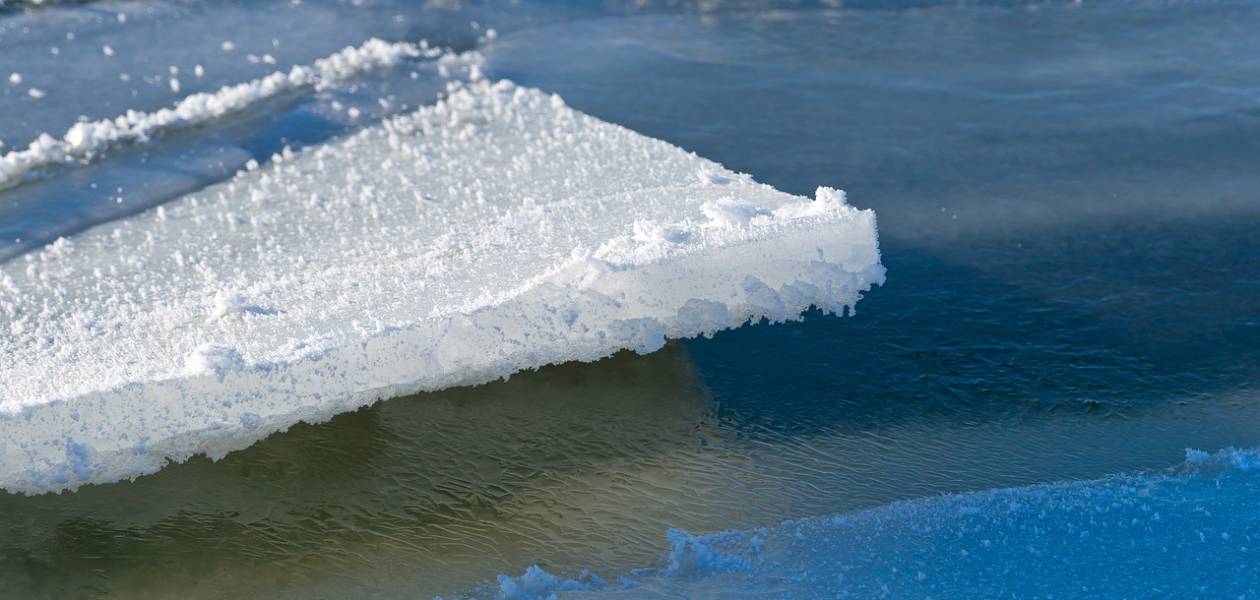
The Arctic, one of the most emblematic regions of our planet, is facing a major challenge: the accelerated disappearance of sea ice in summer. According to scientists, this rapid melting could lead to an ice-free Arctic as early as the summer of 2030; that is to say, much earlier than the Intergovernmental Panel on Climate Change (IPCC) predicted. This alarming reality has profound implications for the global climate, the Arctic ecosystem and the indigenous peoples who depend on this unique region.
The melting of sea ice in the Arctic is a clear indicator of ongoing climate change. Over the past few decades, the Arctic region has recorded higher temperatures than the global average, resulting in a significant decrease in sea ice cover. Researchers have observed a dramatic reduction in the area of Arctic ice during the summer with a minimum of coverage in September, which suggests a possible total disappearance by 2030. This is essentially what a new study published in the journal Nature reveals to us this week.
The disappearance of sea ice would have devastating consequences for the Arctic ecosystem. Sea ice provides crucial habitat for many species, including polar bears, seals and walruses. Melting ice reduces the living space of these animals, disrupting their reproductive cycles, feeding and overall survival. Additionally, increased ocean acidification from melting ice can affect marine life, including the fish and invertebrates that form the base of the Arctic food chain.
The disappearance of sea ice in the Arctic would also have a significant impact on the global climate. Sea ice reflects much of the sun's radiation, helping to maintain the planet's thermal balance. Without the presence of reflective ice, the Arctic Ocean would absorb more heat, which would accelerate global warming. Additionally, the release of methane trapped in the Arctic's underwater permafrost could worsen the effects of global warming.
And it is not the latest measurements carried out by the European Copernicus service, an Earth observation program funded by the European Union, which are reassuring. Indeed, the oceans have just experienced their warmest May on record. Outside of regions where ice is present, the average ocean surface temperature was 19.7°C last month.
Melting sea ice in the Arctic will impact Indigenous communities who have lived in the region for millennia. The Inuit, for example, are highly dependent on sea ice for hunting, transportation and their traditional culture. The loss of this central element of their way of life will have profound socio-economic and cultural consequences. In addition, the opening of new sea lanes and the exploitation of the natural resources of the Arctic raise concerns about the environmental impact and potential conflicts between countries claiming rights over this region.
The prospect of seeing the Arctic without summer sea ice by 2030 is alarming. This phenomenon is a clear reminder of the consequences of climate change and the need for urgent action to reduce our greenhouse gas emissions and mitigate the harmful effects on the environment. Protecting the Arctic and its fragile ecosystems is essential to preserve biodiversity, the global climate and the ways of life of indigenous peoples. The time has come for concerted action to reverse this trend and preserve this unique region for future generations.
The European Copernicus service, an Earth observation program funded by the European Union, has just published its latest report on the state of the global climate. This report, based on scientific data and satellite observations, confirms once again the urgency of action in the face of climate change. The findings highlight alarming trends and call for a collective response to preserve our planet and its ecosystems.
Posted on 2023-06-08 14:43








Comments